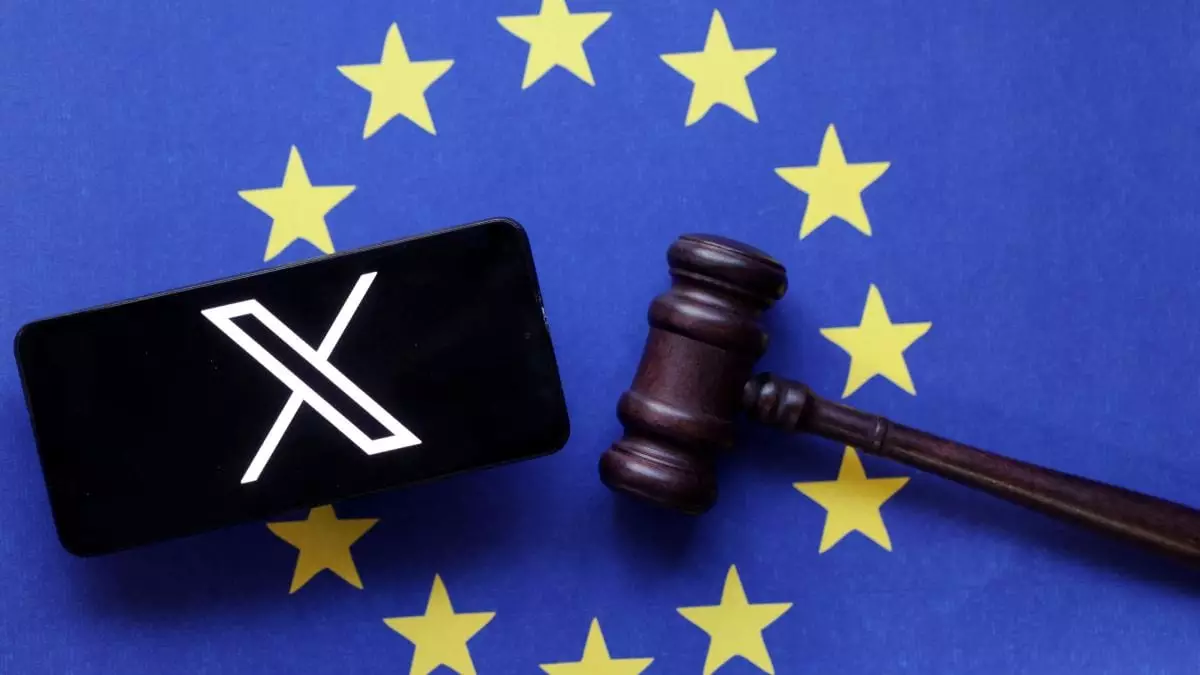In recent years, the digital landscape has seen a significant shift as regulatory bodies worldwide grapple with the immense power held by tech giants. Among the most notable developments in this realm is the European Union’s introduction of the Digital Markets Act (DMA) and the Digital Services Act (DSA), both designed to curb the dominance of ‘Big Tech.’ Elon Musk’s social media platform, X, finds itself navigating these turbulent waters, particularly as investigations into its compliance with these regulations gain momentum.
At the heart of the DMA is its specific designation of companies that are considered ‘gatekeepers.’ To qualify, a platform must boast over 45 million monthly active users and hold a market capitalization exceeding 75 billion euros (approximately 83 billion dollars). The ramifications of this classification are significant; gatekeepers are obligated to make their messaging services interoperable with competitors and allow consumers heightened control over pre-installed applications on their devices. However, reports indicate that X may not meet these criteria, as the platform asserts that it cannot be classified as a crucial intermediary between businesses and consumers. This claim, if upheld, may exempt X from the stringent regulations under the DMA.
Despite the possibility of avoiding DMA classification, the scrutiny faced by X is far from over. The European Commission initiated its investigation into X in May, following the platform’s refusal to yield to prior assessments regarding its status under the DMA. With the Commission committed to finalizing its investigation within a five-month timeframe, observers are keen to see how the outcomes may shape X’s operational strategy moving forward. The Commission has been notably reticent in its comments, leaving the industry to speculate on the potential directions the inquiry may take.
Beyond the DMA, X’s compliance with the newly enacted DSA presents further challenges. Unlike the DMA, the DSA’s framework aims to ensure that large online platforms actively combat illegal and harmful content. Failure to comply may result in sanctions soaring to 6% of a company’s global annual revenue, a steep price for any platform, including X. Current investigations into X’s adherence to DSA mandates underscore the pressure the platform faces to develop robust content moderation and user safety protocols. As anti-regulatory sentiments rise within certain tech circles, the balancing act between maintaining operational autonomy and adhering to regulatory frameworks becomes ever more complex.
While Elon Musk’s X may currently evade the stringent gates of the EU’s Digital Markets Act, it does not escape the broader implications of evolving tech regulations. With scrutiny from the EU intensifying, particularly under the DSA, it will be essential for X to not only respond to investigations but also proactively adapt its policies to align with European standards. As digital governance grows more intricate, the relationship between tech giants and regulatory bodies will undoubtedly continue to transform, making X a focal point in this ongoing dialogue.


Leave a Reply